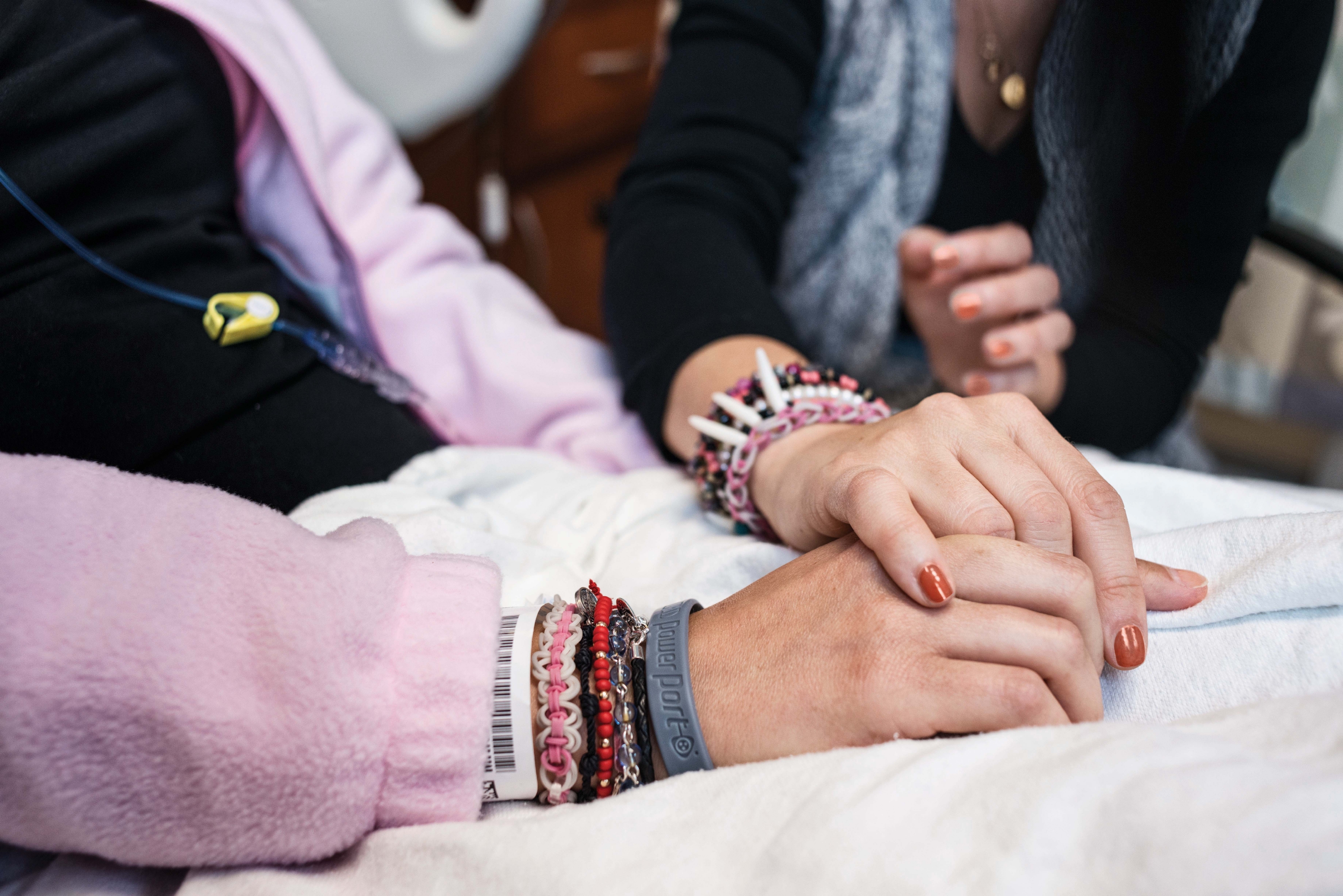Floor leg exercises for the cancer patient
- Diseases
- Acoustic Neuroma (14)
- Adrenal Gland Tumor (24)
- Anal Cancer (66)
- Anemia (2)
- Appendix Cancer (16)
- Bile Duct Cancer (28)
- Bladder Cancer (68)
- Brain Metastases (28)
- Brain Tumor (228)
- Breast Cancer (714)
- Breast Implant-Associated Anaplastic Large Cell Lymphoma (2)
- Cancer of Unknown Primary (4)
- Carcinoid Tumor (8)
- Cervical Cancer (154)
- Colon Cancer (164)
- Colorectal Cancer (110)
- Endocrine Tumor (4)
- Esophageal Cancer (42)
- Eye Cancer (36)
- Fallopian Tube Cancer (6)
- Germ Cell Tumor (4)
- Gestational Trophoblastic Disease (2)
- Head and Neck Cancer (6)
- Kidney Cancer (124)
- Leukemia (344)
- Liver Cancer (50)
- Lung Cancer (288)
- Lymphoma (284)
- Mesothelioma (14)
- Metastasis (30)
- Multiple Myeloma (98)
- Myelodysplastic Syndrome (60)
- Myeloproliferative Neoplasm (4)
- Neuroendocrine Tumors (16)
- Oral Cancer (100)
- Ovarian Cancer (170)
- Pancreatic Cancer (166)
- Parathyroid Disease (2)
- Penile Cancer (14)
- Pituitary Tumor (6)
- Prostate Cancer (144)
- Rectal Cancer (58)
- Renal Medullary Carcinoma (6)
- Salivary Gland Cancer (14)
- Sarcoma (236)
- Skin Cancer (294)
- Skull Base Tumors (56)
- Spinal Tumor (12)
- Stomach Cancer (60)
- Testicular Cancer (28)
- Throat Cancer (90)
- Thymoma (6)
- Thyroid Cancer (98)
- Tonsil Cancer (30)
- Uterine Cancer (78)
- Vaginal Cancer (14)
- Vulvar Cancer (18)
- Cancer Topic
- Adolescent and Young Adult Cancer Issues (20)
- Advance Care Planning (10)
- Biostatistics (2)
- Blood Donation (18)
- Bone Health (8)
- COVID-19 (362)
- Cancer Recurrence (120)
- Childhood Cancer Issues (120)
- Clinical Trials (622)
- Complementary Integrative Medicine (24)
- Cytogenetics (2)
- DNA Methylation (4)
- Diagnosis (226)
- Epigenetics (6)
- Fertility (62)
- Follow-up Guidelines (2)
- Health Disparities (14)
- Hereditary Cancer Syndromes (122)
- Immunology (18)
- Li-Fraumeni Syndrome (8)
- Mental Health (118)
- Molecular Diagnostics (8)
- Pain Management (64)
- Palliative Care (8)
- Pathology (10)
- Physical Therapy (18)
- Pregnancy (18)
- Prevention (886)
- Research (388)
- Second Opinion (74)
- Sexuality (16)
- Side Effects (602)
- Sleep Disorders (10)
- Stem Cell Transplantation Cellular Therapy (216)
- Support (404)
- Survivorship (322)
- Symptoms (186)
- Treatment (1770)
4 tips for exercising during cancer treatment
2 minute read | Published July 16, 2014
Medically Reviewed | Last reviewed by an MD Anderson Cancer Center medical professional on July 16, 2014
Research shows that exercise is safe and beneficial for most cancer patients and survivors. In fact, in most cases, it is important to keep exercising during cancer treatment.
"Exercise has the potential to help reduce some of the fatigue experienced during and after treatment, especially if you're undergoing radiation therapy. And, it can help prevent weight gain commonly experienced during chemotherapy treatment," says Carol Harrison, senior exercise physiologist.
Exercise also has the potential to improve your psychological outlook and improve your quality of life.But you may need to make some adjustments before you exercise during cancer treatment.
"It depends on treatment, type of cancer and when you need to get back into what you were doing before," Harrison says.
Use this advice to help you get started.
Exercise recommendations for cancer patients
The American Cancer Society recommends that, if possible, cancer patients and survivors:
- Avoid inactivity and return to normal daily activities as soon as possible following a cancer diagnosis.
- Do 150 minutes of moderate intensity aerobic exercise or 75 minutes of vigorous intensity exercise per week.
- Include strength-building exercises at least two days per week
Before you try exercising during cancer treatment, though, Harrison recommends the following tips.
Check with your doctor
Cancer patients need to consult their doctors before exercising during cancer treatments. And, working with your doctor is the best way to create an exercise plan that's right for you.
Your doctor can help you prevent injuries and avoid infections. For patients who are more prone to infections, exercising in public places could be an issue. If this is the case for you, you may want to use instructional videos for exercising at home.
In some cases, a physical therapist may be prescribed to help during your recovery period.
Take your time
You might be anxious to reach the same fitness level you were at before cancer, but it's important to slow down and be patient with yourself, Harrison says. If your goal is to have a long life span that includes exercise, you must ease yourself back up to that intensity to avoid injuries or other setbacks.
Consider side effects
Certain cancer treatment side effects may limit activity, especially fatigue. Exercising during periods of extreme fatigue, could cause injury since the body isn't able to function on the same level as before.
However, exercise can reduce fatigue. Just make sure you're exercising in small increments at a level you can handle to reap the benefits.
Set goals
Setting small goals will help you feel a sense of accomplishment as you exercise and work to become stronger after cancer treatment. Just remember the only person you are competing against is yourself.

Exercise has the potential to help reduce some of the fatigue experienced during and after treatment.
Carol Harrison
Senior Exercise Physiologist






